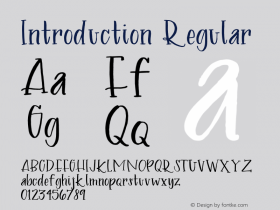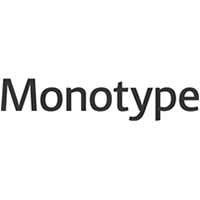Face it – the explosion of rich multimedia, social networks and mobile applications have left you up in arms in establishing a consistent brand, let alone an identity, across a vast and fragmented digital medium. The abundance of rich video content, the extensive and complex array of mobile apps across mobile OS and marketplaces, and the proliferation of social media and networks (like Facebook and Twitter) have made it increasingly challenging to establish a cohesive and consistent, yet distinctive identity and brand online.
With the introduction of HTML5, organizations are presented with a plethora of new and exciting opportunities to address and tackle the challenges. One of the most simple, prominent and elegant components that will be supported in HTML5 is Web fonts via @font-face with CSS3. Web fonts are already supported in browsers today via @font-face with CSS (to learn more about the history and current implementations of @font-face, click here). Web fonts are by far one of the easiest and most crucial elements that can help organizations achieve a consistent brand online across platforms and devices. If fact, if you distill the essence of a brand or identity down to its most basic level, it starts with the typeface. The type builds the name, the type builds the logo, the type builds the brand and identity.
While delivering a consistent brand across mediums in the non-digital world has been achieved through hundreds of years of technology and development, the same cannot be said for the digital medium – yet. HTML5 will be the first vehicle that will standardize the proliferation of Web fonts via the @font-face CSS across digital mediums, across all devices and platforms. Through @font-face, Web fonts will enable brands to establish and deliver a consistent identity online that extends from the desktop to tablets to mobile devices in various use cases that can include the following:
Corporate websitesAdsWeb applicationse-Books (via the EPUB® specification)
In addition to broad and consistent reach across devices, the adoption of Web fonts also brings the following benefits to the use cases:
Full searchability by Find (ctrl/command-F)Accessibility to assistive technologies like screen readersText is translatable, through in-browser translation or translation servicesCSS has full ability to tweak the typographical display: line-height, letter-spacing, text-shadow, text-align, and selectors like ::first-letter and ::first-line
While HTML5 nears final ratification, it can be assured that the surge of innovation will drive accelerated adoption and implementation of the new standard by Web browsers, leading first with mobile and tablet platforms and followed shortly by the desktop. This will be one of the first, if not the first, web standard that will be driven from mobile to desktop as consumer engagement with digital content shifts (or has shifted) more toward tablet and mobile devices than the desktops, creating an even a greater sense of urgency for businesses to develop and extend a consistent brand and identity across the fragmented mobile environment.
Monotype Imaging has been on the forefront of delivering desktop and Web fonts to brands, enabling them to extend their trusted identity consistently across digital and non-digital mediums and across a variety of use cases. Take a look at some of the market leading brands who are already leveraging Web fonts today:
 Honda CR-Z Honda CR-Z
|
|  Hershey's Hershey's
|
|
 Hyundai Hyundai
|
|  TCBY TCBY
|
|
 TravelSmart TravelSmart
|
|  Powerade Powerade
|
|
 Coke & Pepsi Coke & Pepsi
|
|  Toblerone Toblerone
|
|
 McLaren McLaren
|
|  Historic Hotels of America Historic Hotels of America
|
|
And many more!
To learn more about how Web fonts can help your business or to choose the Web fonts best for you, please visit webfonts.fonts.com.
 Honda CR-Z
Honda CR-Z Hershey's
Hershey's Hyundai
Hyundai TCBY
TCBY TravelSmart
TravelSmart Powerade
Powerade Coke & Pepsi
Coke & Pepsi Toblerone
Toblerone McLaren
McLaren Historic Hotels of America
Historic Hotels of America






